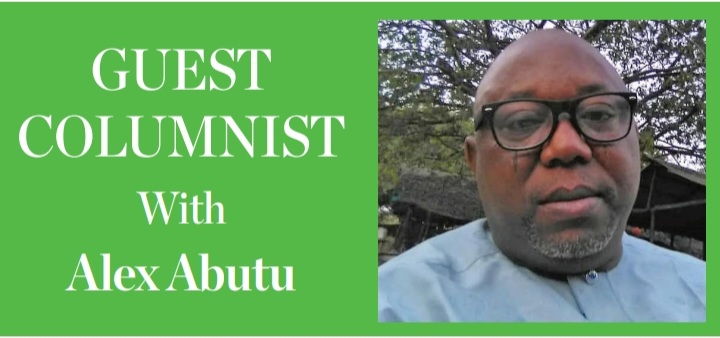Is Baba Tinubu aware of what is happening?

By Alex Abutu
Last week, I was in the market to buy some food items but could not go ahead to do the purchases of items that I needed because I thought the seller was unnecessarily wicked but on reaching home, the pressure made me return to the market after 3 hours and lo and behold the prices had doubled.
I need not recount the experiences of others who bought cement, zinc and other goods whose prices were changing every hour. One of the biggest explanations given by the traders is that the United States Dollars has risen. But the question my aged mother has been asking me is, how does the dollar rising affect oranges planted in the backyard?
Today, various international organisations are issuing security alerts warning their citizens and workers to stay away from some states because of protests occasioned by the high cost of living especially the high cost of food.
When you tune in to any radio or television daily, you are confronted with discussions on how the government has either failed or does not care for the welfare of the citizens.
Social media platforms are bombarded hourly with news of Nigerians suffering from the current economic realities that seem not to honour any law.
Now the tough question we need to ask is President Bola Ahmed Tinubu aware of what is happening? Before I attempt, from my small vintage position, to offer an answer, I would like to start by expressing huge disappointment with the President’s preparedness for the job.
Before the elections, BAT was rated as one of the best for the job because of his ability to identify and harness talents. Expectations were that, having foreknowledge of the sorry state of the economy handed over to him by former President Buhari, BAT was going to put together a crack team made up of the best brains that Nigeria can boast of from all areas of human endeavors but what did we get, a watery team lacking in all areas of expertise but well equipped to dash the hopes of the few millions that stood all day to cast their vote for BAT.
Today, we woke to 1 USD equal to N1700. How much will it be by tomorrow? Yet, the government does not see any reason to arrest the situation. The situation we find ourselves, reminds me of an article I read shortly before the 2023 general elections. In the article, the writer posited that if given the opportunity he will not contest for the number one seat knowing the level of damages done by the last regime.
Yet, the audacity with which BAT campaigned and made policy statements immediately he was sworn in, we thought, he already had a game changer for Nigeria. But rather he unleashed a colony of unprepared people on the nation.
Incase he has lost it all, one of our duties as gentlemen of the fourth estate is to remind him that there are measures he can still undertake to panel beat things into shape.
He ought to know that managing an economic crisis requires a multifaceted approach that addresses both short-term stabilization measures and long-term structural reforms. Here are several strategies the Nigerian government could consider:
Fiscal Policy Adjustments: The government can implement fiscal policies such as increased government spending on infrastructure projects, healthcare, and education to stimulate economic activity. However, this should be balanced with prudent fiscal management to avoid unsustainable debt levels.
Monetary Policy Measures: The Central Bank of Nigeria (CBN) can use monetary policy tools such as interest rate adjustments and open market operations to manage inflation and stabilize the currency. However, policymakers must consider the impact of these measures on borrowing costs and investment.
Exchange Rate Management: The government can adopt policies to manage the exchange rate effectively, including interventions in the foreign exchange market and implementing measures to boost foreign exchange reserves. A stable exchange rate can promote investor confidence and attract foreign investment.
Nigeria needs to undertake structural reforms to diversify its economy away from oil dependency. This includes investing in sectors such as agriculture, manufacturing, and services to create jobs and reduce reliance on oil revenue. Additionally, improving the business environment, reducing bureaucracy, and enhancing transparency can attract investment and foster economic growth.
Investment in Infrastructure: Investing in critical infrastructure such as roads, ports, railways, and power generation can lower production costs, improve efficiency, and attract private investment. Infrastructure development can also stimulate economic activity and create employment opportunities.
Social Safety Nets: Implementing social safety net programs can protect vulnerable populations from the adverse effects of the economic crisis. Genuine cash transfer programmes, food assistance, and job training programs can help alleviate poverty and reduce inequality.
More importantly, the need to enhance governance and anti-corruption measures: Strengthening governance structures and implementing anti-corruption measures can improve public trust, enhance investor confidence, and ensure the efficient allocation of resources. A lot of those who looted the country are roaming the streets and intimidating citizens without the law doing anything about them. We cannot continue that way.
Implementing these strategies requires political will, effective coordination among government agencies, and engagement with diverse stakeholders. It is essential to adopt a comprehensive and integrated approach to address the root causes of the economic crisis and build a more resilient and inclusive economy in Nigeria.
